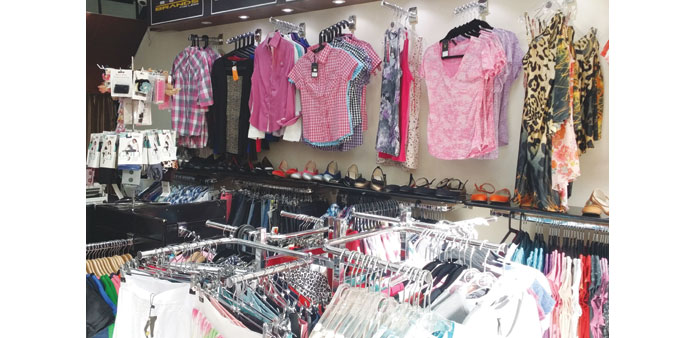By Joey Aguilar
Many retail businesses in Qatar are taking advantage of the rush of customers in the run-up to Eid al-Fitr to further increase sales, a manager at a well-known clothing chain has said.
The manager said they were “working hard to sell and earn more these days” also because they anticipate an “off-season” after the Eid celebrations.
“For now, though, we expect people to continue buying more clothes until the (Eid) holidays,” he said, adding that companies normally increase the volume of items in their stores.
During this period, shoppers take advantage of various promotions, discounts and special offers of different stores and brands operating in Qatar. Products in a variety of designs and models at shops also prompt many customers to buy more.
The manager said employees and managers like him also receive incentives for meeting and exceeding their targets.
Believing that their competitors also earn bigger profits during Ramadan and Eid, the manager said revenues usually rise by an average of 40% to 45% during this period.
According to the manager, the revenues of retail businesses selling both low-end and high-end clothing products increase this time of the year.
He also observed that about 40% of their customers were Qataris who buy in bulk, spending between QR2,000 and QR3,000 (each person) on clothing alone in a store. Expatriates spend less but constitute a bigger percentage (60%) of their revenue.
After the Eid holidays, many businesses expect profits to drop, according to the source. However, the revenue surges again during Eid al-Adha.
Shops selling other products, too, see good sales during this period. A superviser of a leading sports shop noted encouraging bicycle sales (around 65 units per week) from June up to this month.
He sees the rapidly growing population as a good opportunity to sell more products. But, at the same time, it brings tough competition into the market, he adds.
Various shops offering cheaper prices have recently opened in malls as well as in different parts of Doha. These include those selling products from countries such as China, India, the Philippines, Sri Lanka, Vietnam and other parts of Asia.
While product quality remains the main issue for many customers, some entrepreneurs and businessmen believe that the support of their respective expatriate communities helps a lot in dealing with the competition and the other challenges they face.

